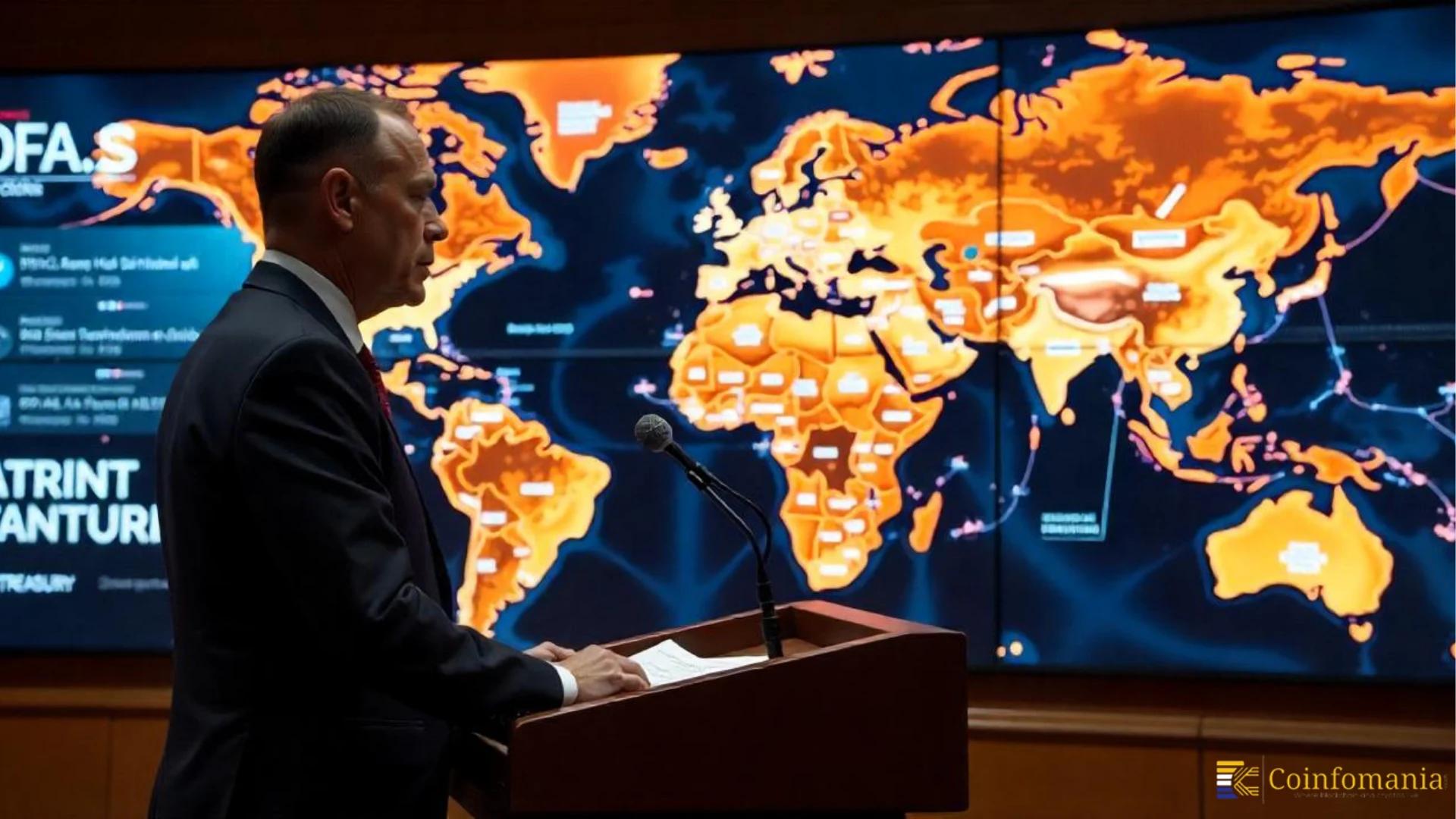OFAC Imposes Sanctions on Houthi Backers Using Crypto for Arms and Commodity Deals
OFAC targets Houthi financial network with new sanctions, blocking eight cryptocurrency addresses linked to arms and commodity deals with Russia. The U.S. intensifies efforts to cut off terrorist financing through crypto.

The U.S. Department of the Treasury’s Office of Foreign Assets Control (OFAC), has sanctioned a financial network utilizing cryptocurrencies to assist Yemen’s Houthi rebels in negotiating with Russia for weapons and commodities. Eight bitcoin addresses and several Russian-based middlemen involved in insurgency money laundering are included among the sanctions. The efforts of the U.S. government to keep the Houthis out of international banking systems have risen dramatically with this move.
By dismantling the financial infrastructure that facilitates drone strikes, missile assaults, and disruptions of international trade and regional security in the Red Sea, OFAC is reaffirming that terrorist financing, whether or not it is enabled by cryptocurrency, will be subject to ongoing pressure.
Crypto at the Core of Illicit Arms Financing
According to a report by the TRM Labs, the United States Department of the Treasury’s Office of Foreign Assets Control (OFAC) has placed new sanctions on the financial networks of the Houthi group or Ansarullah, which is a Yemen-based group and has been a Specially Designated Global Terrorist (SDGT). The sanctions specifically target eight cryptocurrency addresses belonging to the Houthis. The Iran-backed Houthi network has reportedly been said to have depended heavily on cryptocurrencies to purchase advanced weaponry from Russia.
This latest action is part of ongoing efforts to cut off financial support for the Houthis, a group linked to Iran’s Islamic Revolutionary Guard Corps-Qods Force (IRGC-QF) and other associated groups. The Houthis were initially designated as a terrorist organization in January 2021, removed from the list in February 2021, and then re-designated as a terrorist group in February 2024. These recent sanctions aim to target both traditional and digital financial systems used to fund Houthi operations.
ChainAnalysis reports that, “Sanctioned jurisdictions and entities received $15.8 billion in cryptocurrency in 2024, accounting for about 39% of all illicit crypto transactions. In total, OFAC issued 13 designations that included cryptocurrency addresses — slightly fewer than in 2023 — but still the second-highest amount in the last seven years. In a departure from prior years, sanctioned jurisdictions accounted for a record share of total sanctions-related activity compared to individual entities, commanding nearly 60% of value by the end of 2024.”
Further investigation revealed that nearly $1 billion in money tied to sanctioned companies was moved via the wallets. Most of them funded Houthi operations in the Red Sea area and Yemen. Through the use of cryptocurrency addresses on Garantex, a notorious Russia-based money laundering facilitator, the Houthis managed to receive nearly $45 million. In addition to that, wallets previously linked to funding Hamas, the group involved in the ongoing conflict with Israel, processed nearly $2.5 million.
Moreover, TRM Labs’ analysis shows that the eight cryptocurrency addresses sanctioned have seen millions of dollars passed on to other high-risk and OFAC-sanctioned destinations. These include Sa’id al-Jamal and Garantex, in addition to addresses associated with producers and vendors of unmanned aerial vehicles (UAVs) and anti-UAV equipment associated with China and Russia.
A Strategic Move Against the Houthi Insurgency
These recent sanctions are part of the US government’s ongoing policy to undermine the financial capabilities of parties participating in destabilizing conflicts. The Houthis have long been accused of exploiting Yemen’s civil war, which has led to significant regional unrest for many years. Experts believe that stopping the flow of illicit funding is critical to limiting their capacity to continue the battle and keep control over important territory in Yemen.
The OFAC sanctions deliver a direct and clear message to the Houthis and their supporters that using digital currency to circumvent sanctions and pay for weapons will not be tolerated. As bitcoin continues to become an increasingly indispensable instrument in world banking, the steps being taken now will have long-term implications for how nations and institutions fight financial crime.
Follow us on Google News
Get the latest crypto insights and updates.


